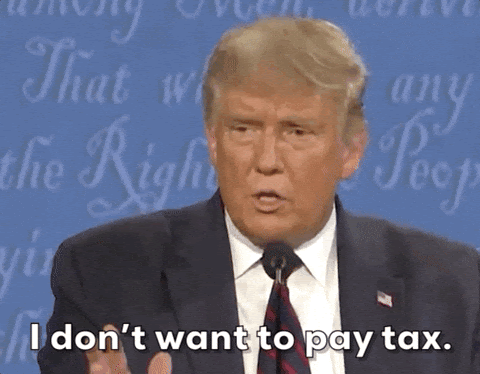July 4
This week in MORE POWER:
Big Bill Passes
Tax Winners and Losers
Healthcare Scare
Hunger Games
Cutting Clean
Big Bill Passes
There's no debating that it's big, but its beauty has been the topic of discussion for weeks and we have covered it all here while giving you the tools to take action. The huge government spending and tax bill referred to by President Trump as the "Big Beautiful Bill" is headed to his desk for signature today after the House and Senate both passed it. Members of both chambers have been hashing out specifics of the highly controversial bill. In this edition of MORE POWER, we will tell you what made it into the final version, which raises the debt ceiling over $5 trillion, allowing the federal government to borrow more money to cover obligations like Social Security, military salaries, Medicare, and interest on the national debt.
Tax Winners and Losers
Trump’s bill makes the 2017 tax cuts permanent and adds even more breaks, especially for wealthy households and corporations. People earning over $460,000 will get thousands more back each year — the top 0.1% will gain nearly $300,000 annually on average. Meanwhile, the middle 60% of earners will see much smaller gains, around $380 to $1,800. The bill also raises the cap on the state and local tax deduction (SALT) from $10,000 to $40,000 for five years — a win for high earners in places like New York and California. For tipped and overtime workers, there’s a temporary break allowing them to deduct up to $25,000 in tip income and $12,500 in overtime. But those deductions phase out above $150,000 in income and expire in 2028. Small business owners got a win — the bill makes permanent a 20% tax deduction for owners of pass-through businesses — like LLCs, partnerships, and sole proprietorships — allowing small business owners, including doctors, lawyers, and freelancers, to reduce their taxable income and keep more of their profits. The total cost of these tax cuts is nearly $4.5 trillion.
Healthcare Scare
The bill imposes new federal work requirements for Medicaid, a joint federal and state program that provides health insurance to low-income individuals and families, including children, pregnant women, seniors, and people with disabilities. For the first time in the program’s history, able-bodied adults — including parents of teens — must work, volunteer, or train to keep coverage. Re-enrollment checks will now happen every six months, and states must verify income and residency more frequently. As a result, the Congressional Budget Office estimates nearly 12 million people will lose Medicaid coverage over the next decade. States that use provider taxes to fund Medicaid will see those taxes capped and phased down — a major blow to safety-net hospitals. The bill offers $50 billion in rural hospital aid, but the American Hospital Association says it won’t come close to covering the gaps. Middle-income families on Affordable Care Act (ACA) plans may also lose coverage due to tighter verification rules. The changes will take health insurance away from many— especially low-income adults, disabled people, and rural residents.
Hunger Games
The bill raises the age for the Supplemental Nutrition Assistance Program (SNAP), also known as food stamps, work requirements from 54 to 64 — meaning more adults must prove they’re working, volunteering, or in training to keep benefits. Parents of kids as young as 14 must meet the requirement, and exemptions are narrow. The Congressional Budget Office estimates nearly 5 million people will lose SNAP access in the next decade, including many older workers and low-income parents. Starting in 2028, states with high SNAP error rates must pay 5–15% of the program’s cost — a huge shift from today, where the federal government covers it all. That change could lead to stricter state rules and dropped cases, especially in states that can’t or won’t cover the shortfall.
Cutting Clean
The bill eliminates or phases out nearly all clean energy tax credits by 2028, gutting incentives for wind, solar, home energy upgrades, and electric vehicle (EV) purchases. EV tax credits will expire this September — years ahead of schedule — ending a $7,500 incentive for new and used electric cars. Home energy credits for heat pumps, insulation, and EV chargers are also on the chopping block. The bill terminates the Greenhouse Gas Reduction Fund, cutting off a major source of pollution-reduction grants for community-based projects. These changes come as extreme heat and weather worsen — and as clean energy jobs have become a fast-growing sector in red, blue, and swing states alike.
Bills Congress Passed
What The President Signed Into Law
Nothing.











